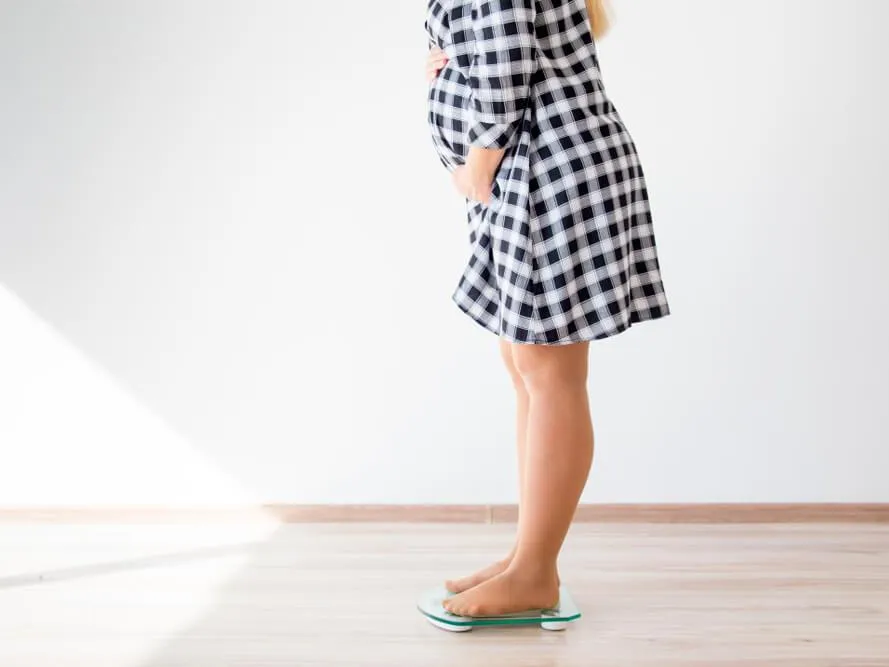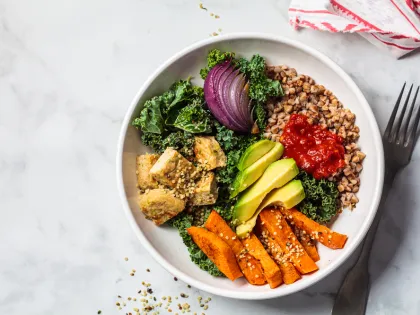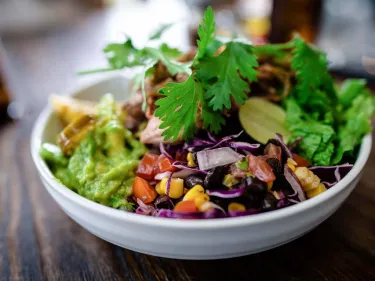During pregnancy, weight gain is normal. As the baby grows your body changes. Weight gain is due to extra fluid from increased blood volume, amniotic fluid around the baby, the baby itself, the placenta, extra body tissue as your body expands during pregnancy, and extra fat stores, especially towards the end of pregnancy, to provide a buffer to support energy needs after the baby is born. Both gaining too much or too little weight during pregnancy can increase the risk of some adverse birth outcomes and pregnancy complications. These include having a baby that can be either of a high low or high birth weight, gestational diabetes, high blood pressure, pre-eclampsia, and the need for additional interventions during birth. How much weight you gain is influenced by whether you’re having one baby or multiple, and your weight status before pregnancy. This can be measured by Body Mass Index (BMI) (which you can calculate here). Generally, the higher your BMI the less weight you need to gain during pregnancy.
Have you heard some people say ‘now you’re pregnant you’re eating for two’?
This is a myth. For most people, there is no need to increase the amount of food eaten in the first trimester. In the second trimester energy needs do increase, by around an extra 1,260kJ per day (300 Calories), roughly equivalent to a 200g tub of low fat yogurt, with a banana and sunflower seeds. Going up to around 2,000kJ per day (500 Calories) in the third trimester, which might look like 40g of low fat cheese, avocado and tomato on corn thins, and a garden salad with 65g cooked chicken breast.
How much weight gain is appropriate for me during my pregnancy?
It can be hard to locate credible information on nutrition and pregnancy. Even harder if you're from a non-English speaking background. Our team of dietitians and nutritionists have put together a quick reference sheet as a guide to recommended weight gain during pregnancy. This includes a fridge guide to a healthy plate for pregnancy to help with planning healthy balanced meals.
We have also translated this English resource into Chinese (Traditional), and included information relevant to women with Chinese heritage.
Keep in mind that these are general guidelines. Every woman and every pregnancy is different. Talk to your doctor about what’s right for you and your baby. If you have specific nutrition needs or problems then ask to be referred to an Accredited Practising Dietitian (APD).
Find out the recommended weight gain for your pregnancy below:
Pregnancy Weight Gain recommendations (English)

Pregnancy Weight Gain recommendations (Chinese (Traditional))














